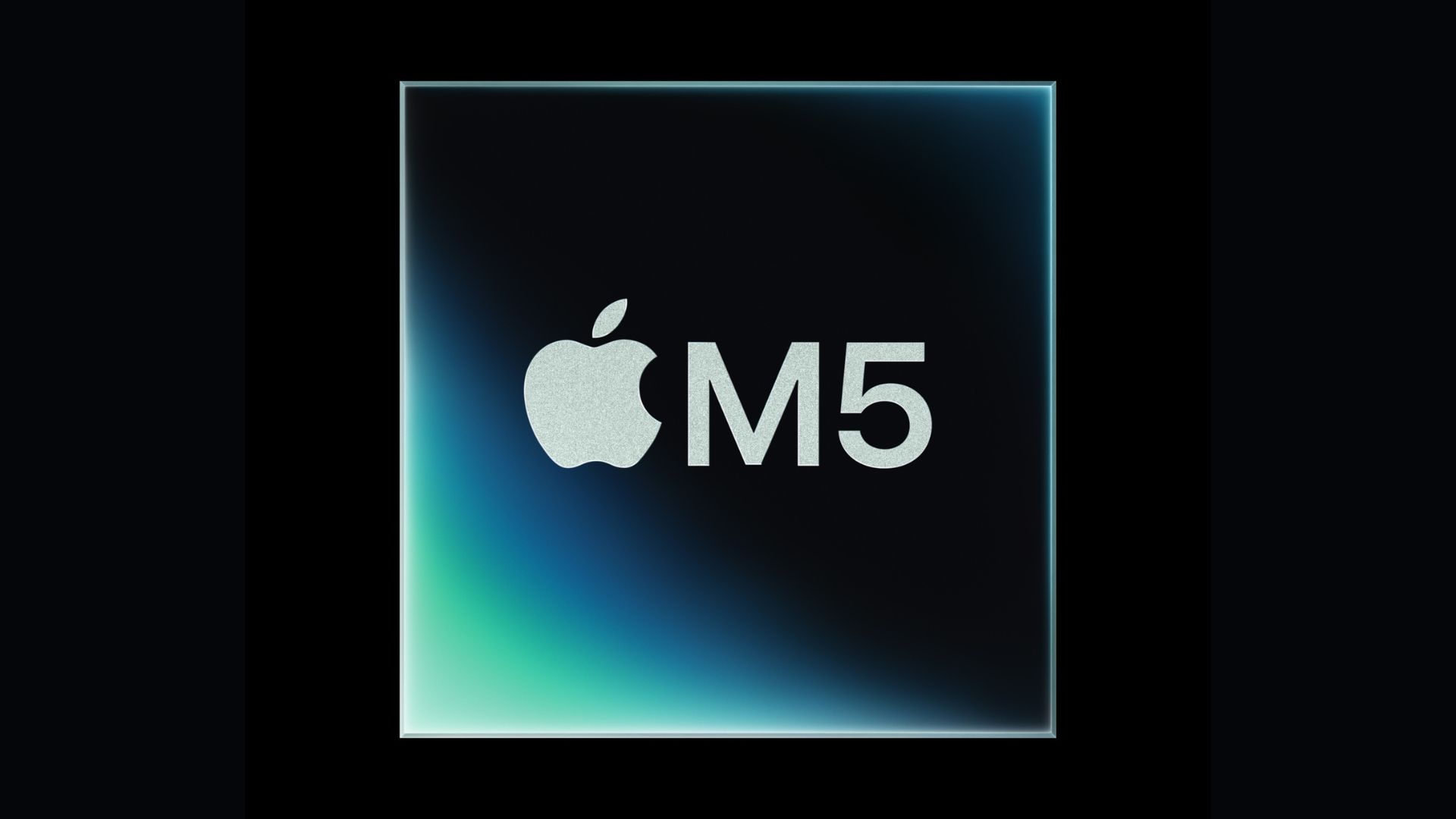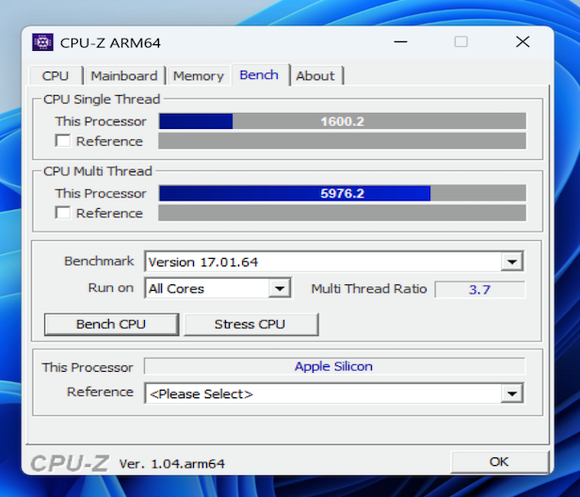
Virtualized Windows 11 test shows Apple’s M5 destroying Intel and AMD’s best in single-core benchmark
Apple’s processors are notorious for their high performance when running in their native environments: macOS and iOS. However, an experiment conducted by NPacific, a Chinese enthusiast (via HXL), shows that Apple’s latest M5 processor can destroy high-end CPUs from AMD and Intel while running Windows 11 in virtualization mode. There is a catch, though: So far, the enthusiast has only benchmarked the M5 processor in CPU-Z, a synthetic benchmark.
Staying true to Apple’s goal of developing processors with the maximum possible single-thread performance, the M5 system-on-a-chip (SoC) scores 1600.2 points in single-thread CPU-Z version 1.04.arm64 benchmark, assuming the results from an unknown enthusiast are to be believed. This is the highest single-thread score ever registered on a non-overclocked CPU in the CPU-Z database. To put it into context, Intel’s Core i9-14900KS scores 952 points in this benchmark, whereas AMD’s Ryzen 9 9950X3D achieves 867 points.
As it turns out, a custom Armv9 core from Apple running at up to 4.60 GHz can outstrip a Raptor Cove core by a whopping 68% and a Zen 5 core by astounding 84.5%, at least in this one benchmark. We do not know if Intel’s and AMD’s cores can actually achieve their 6.20 GHz and 5.70 GHz maximum boost clocks in CPU-Z, but the current result is fantastic for Apple.
When it comes to multi-thread performance in CPU-Z, the results are more of a mixed bag for Apple’s M5. The CPU has 10 cores without simultaneous multi-threading, so the benchmark runs 10 threads on the processor, which scores 5976.2 points. Since AMD and Intel do not have high-performance client CPUs with 10 cores, it makes sense to compare Apple’s M5 to CPUs running 8, 12, 16, or 20 threads.
Apple’s M5 outperforms all CPUs running 8 threads, and its closest rival — Intel’s Core i7-12700K — scored 5533 points. However, with its 12 threads, the CPU finds itself near AMD’s eight-core Ryzen 9-7900X (5935 points) and well behind current-generation Ryzen 9900X or previous-generation Core i7-12700K (7550 points). With 16 threads, Apple’s M5 result looks rather pale, on the level of Intel’s Core i5-13450HX (5978 points), andwell behind AMD’s Ryzen 9 9950X3D.
Since there is no CPU-Z compatible with macOS or iOS, we can only wonder whether the rather weak result of Apple’s M5 is conditioned by its limited core count, lack of simultaneous multi-threading, or Windows 11’s scheduler that does not know how to properly work with Apple Silicon CPUs in multi-threaded environments.
Keeping in mind that we are dealing with a synthetic benchmark run in virtualization mode, we can’t really draw any solid conclusions from these results, except to note that Apple optimizes its SoCs to demonstrate maximum single-thread performance for higher power efficiency. That’s not exactly anything new, but these results pique our interest, and we’d love to see the M5 tested in other benchmarks in Windows.
